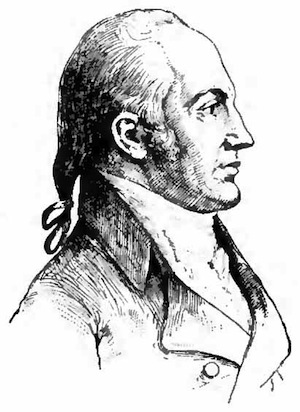Gore Vidal’s ‘Burr’: A Tea Party Antidote
In 1973, Gore Vidal published a novel that struck at the ankles of the notion that the United States is a country founded by altruistic do-gooders whose highest ambition was the creation and protection of the Constitution.
In 1973, Gore Vidal published a novel that struck at the ankles of the notion that the United States is a country founded by altruistic do-gooders whose highest ambition was the creation and protection of the Constitution.
If members of the tea party — America’s current prevailing band of self-styled Constitutional defenders — understood the recently deceased Vidal’s work and understood that his “Narratives of Empire” series was written after exhaustive studies of journals, newspaper articles and letters taken from their subjects’ time, they might be persuaded to abandon their early American pieties for a view of the founders that in certain cases resembles the nation’s current cast of political “men wanting to make a place for themselves.”
— Posted by Alexander Reed Kelly. Follow him on Twitter: @areedkelly.
Your support matters…Adam Kirsch at Bloomberg:
“Burr” delights in subverting everything we think we know about how the country was built. With his characteristic patrician sarcasm, Vidal casually scraps the enduring notion of American exceptionalism, the idea that our politics, unlike those of the corrupt Old World, are founded on ideals of democratic equality and public virtue. If the Tea Party today looks back to the founders with reverence, “Burr” suggests, that is only because they did such a good job mythologizing themselves and mesmerizing posterity.
… After independence, Burr moves to New York and makes his fortune as a lawyer and politician. Politics in the early republic, Vidal suggests, were a simple matter of patronage and party infighting; Burr rises because of his skill at playing off factions against one another. The high point of his career came in the election of 1800, when he tied in the Electoral College with Thomas Jefferson. The election was sent to the House, where the majority of state delegations chose Jefferson the victor. From then on, Vidal suggests, Jefferson was determined to crush Burr. Indeed, Vidal’s Jefferson reminds the reader of no one so much as Richard Nixon: Both are vindictive and paranoid, willing to run roughshod over the Constitution to get at their enemies.
Independent journalism is under threat and overshadowed by heavily funded mainstream media.
You can help level the playing field. Become a member.
Your tax-deductible contribution keeps us digging beneath the headlines to give you thought-provoking, investigative reporting and analysis that unearths what's really happening- without compromise.
Give today to support our courageous, independent journalists.






You need to be a supporter to comment.
There are currently no responses to this article.
Be the first to respond.